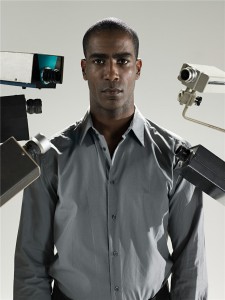Face recognition leads to many cases of privacy violation
Recently, Clearview AI, an American face recognition company, suffered data leakage. Without the permission of the parties concerned, the American start-up company captured about 3 billion face photos from social network platforms such as Facebook, twitter, instagram, LinkedIn, venmo and Youtube. Their main customer is the police station, which can identify the suspect’s face information in a few seconds. Twitter, Google, youtube and other companies have sent letters to Clearview AI, asking them to stop accessing their website data. This rather low-key company has come to the public for its alleged invasion of privacy.
Face recognition is widely used in many mobile phones. In addition to the unlocking screen of mobile phones, social regulatory agencies can use face recognition. But with more and more data collected by face recognition companies, there are many problems, such as whether the face data belongs to the company or the user? Within what scope can face data companies use this data? What if it leaks? Can data be sold at a price? How to collect face data without violating personal privacy, and where is the boundary? The use of big data technologies such as face recognition in various scenarios has raised concerns about privacy violations.
Some people will say that the starting point of using face recognition and big data for monitoring is good, and the motivation is goodwill. Hoon ton, CEO of Clearview AI, argued that Clearview AI is to help law enforcement agencies better combat criminal crimes. He said he had “the best intentions.”. The problem is that, under the motive of goodwill, the processing power of private data is concentrated in the hands of a small number of people, which is very dangerous. In addition to the risk of leakage, the stored data also has the risk of abuse. For example, it has been repeatedly revealed that database management staff use their positions to find personal hotel occupancy records. Prying into privacy is the weakness of human nature. People also have selfish desires and seek their own interests. We have to guard against it.
In fact, technology is neutral, and it is the people behind it who commit crimes. Therefore, we should limit the possibility of such crimes by means of laws and other means. For example, the San Francisco Congress of the United States has approved stop secret surveillance order, which explicitly forbids San Francisco law enforcement departments to use face recognition technology. For the first time in history, the government has been prohibited by law from using monitoring technology such as face recognition, because government departments are most likely to abuse public power.
We can’t deny the power of technology. What we should do is to prevent this power from being abused. In the collection of privacy information such as face recognition, we need to meet some principles, such as only collecting the least information used, users have the right to know and obtain consent before collection, controlling the risk of information storage and processing, and taking remedial measures. Once there is a problem, who will bear the responsibility, the responsibility should be clear. The control means of face recognition that can do this is the control technology that we are willing to accept.
Post time: Jul-17-2021


